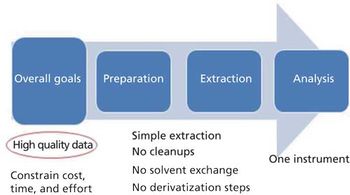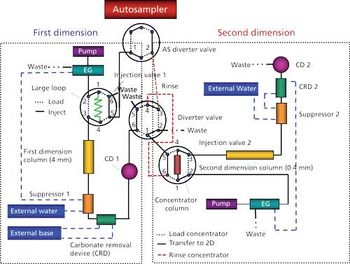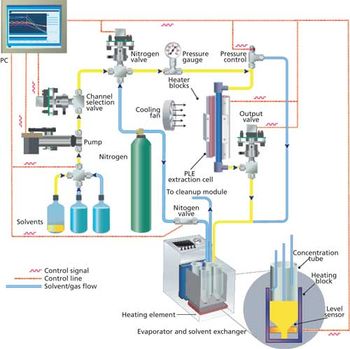
Special Issues
Click the title above to open the LCGC North America October 2017 Advancing Environmental Analysis, Vol 35 No s10, in an interactive PDF format.

Special Issues
Click the title above to open the LCGC North America October 2017 Advancing Environmental Analysis, Vol 35 No s10, in an interactive PDF format.

Special Issues
The antimicrobial triclosan is present in myriad personal care products, many of which are disposed of down household drains and travel to wastewater treatment plants. This article describes a simple and rapid method for the preparation and extraction of triclosan and methyl triclosan from the complex matrix of biosolids and paper mulch samples followed by analysis using GC–MS/MS.

Special Issues
Wastewater analysis has become an established approach for retrieving additional epidemiological information about the use of illicit drugs, alcohol, and tobacco at the population level. Here, we present an overview of the recent analytical frameworks and workflows for target and suspect analyses using low- and high-resolution mass spectrometry and discuss the latest advances in wastewater-based epidemiology (WBE).

Special Issues
This article evaluates ASTM D7979-16 for the “direct” analysis of 30 PFCs and 19 mass-labeled surrogates. Instead of using solid-phase extraction, the PFCs were solubilized in a methanol–water mix and filtered if necessary, and the sample was injected into a LC–MS/MS system.

Special Issues
The disinfectants commonly used to treat public drinking water can react with naturally occurring organic and inorganic matter in the source water to form disinfection byproducts such as haloacetic acids. Here, we describe the use of two-dimensional matrix-elimination ion chromatography (MEIC) for haloacetic acid analysis. This method minimizes the impact of matrix ions.

Special Issues
The persistent nature and toxicity of persistent organic pollutants (POPs) lead to high demands for quick and accurate sample analysis. This article describes the use of automated sample processing techniques such as pressurized liquid extraction and automated column chromatography cleanup that are suitable for environmental sample analysis.